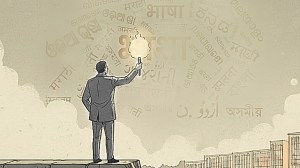China146;s GenNext cartoon
Bad Girl aims to catch a popular culture wave in the country8217;s youth market

Little P is a red-haired joker with a robot dog and a mind bursting with rebellion. She has a closet filled with tight, midriff-baring clothes. Her biggest worry is getting fat. Meet Bad Girl, a cartoon aimed at a generation of young Chinese raised on a diet of imported video games, Kentucky Fried Chicken and communist rhetoric.
When Song Yang published his Bad Girl comic book last year, his friends asked whether the character was him in disguise. 8220;I guess I am a lot like her,8221; said the elfin 25-year-old, dressed in a pair of tight black jeans and a T-shirt.
Song has the oversized ambition of creating a cartoon character that can help redefine the world8217;s image of modern China. But Song is trying to catch a popular culture wave in a country where the tide shifts quickly, the competition for the youth market is fierce and the generation gap is measured in years rather than decades.
8220;Chinese kids, especially in the cities, have a cocky, smart, urban edge to them,8221; said Stacey Duff, the arts editor for Time Out Beijing, an English-language magazine to which Song is a contributor. 8220;If they see something that doesn8217;t match their lives, they8217;re going to lose interest fast.8221;
Little P isn8217;t exactly a paragon of modern Chinese virtue. She talks back to her parents, makes fun of ancestor worship and secretly smokes cigarettes. Her dysfunctional family is more like The Simpsons than The Cleavers.
But look more closely, Song said, and Bad Girl offers a positive message.
8220;A lot of Chinese young people appear to be very bad on the surface,8221; he said. 8220;They might appear to be lazy, they may cheat people often, they8217;re crazy about money. But when they come across serious things, the kindness in their heart will be expressed.8221;
Song is riding high: Bad Girl is featured in an advertisement for Hugo Boss8217; Man fragrance; he has a gallery show in Beijing8217;s trendy Dashanzi art district; and he is working on a 8220;cartoon-based record8221; for a foreign music company, featuring original songs sung by him and a voice created for Bad Girl8217;s character. The record is due out this year.
In the last decade, China8217;s leaders have significantly relaxed their controls on artists, leading to a flowering of painting, photography and performance art exploring previously taboo subjects.
- 01
- 02
- 03
- 04
- 05































